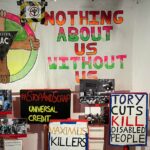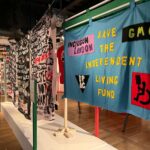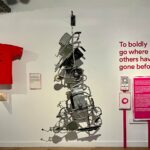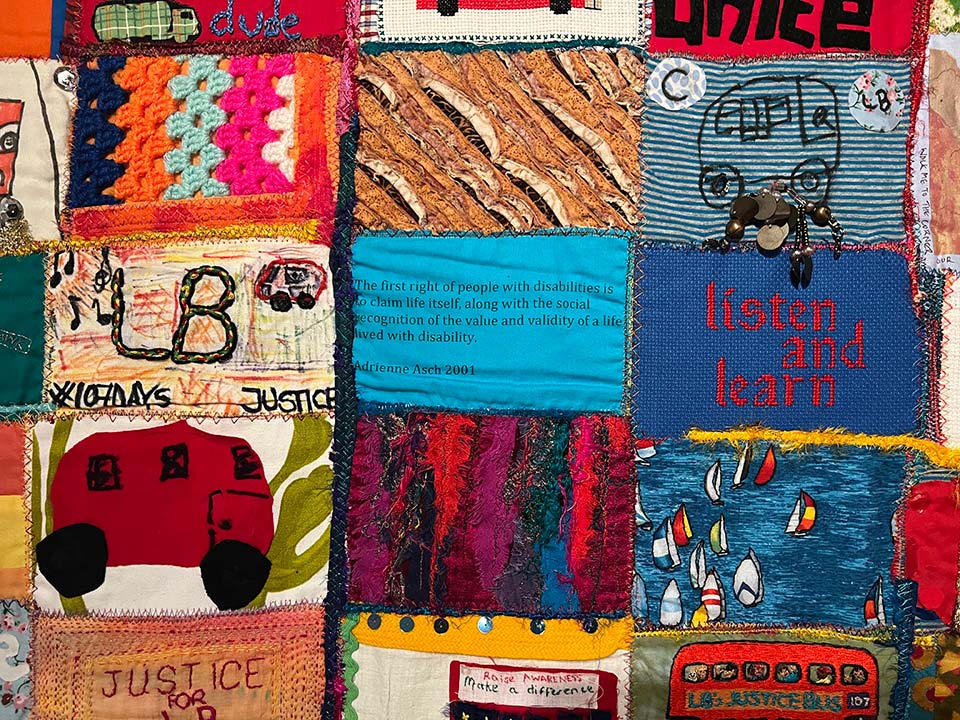For months after my son, Connor (known as Laughing Boy or LB) died in 2013, I had an overwhelming urge to tell people what had happened. Strangers.
In my head, I’d scream the details at people, on the London underground, on the bus, in the supermarket. Occasionally, I did tell (without screaming) and learned this telling was upsetting, uncomfortable, discounted. People were unable to respond.
Connor, who loved painting and drawing, was 18 when he drowned in the bath in a short-term assessment and treatment unit in Oxford. An independent review found his death was preventable.
Supporters of the subsequent #JusticeforLB campaign to improve care for people with learning disabilities made art, including the #JusticeforLB quilt.
Visiting the Nothing About Us Without Us exhibition at the People’s History Museum, Manchester, which includes the quilt, I’m reminded of those first few months after Connor died.




This free, landmark exhibition explores the history of the fight for disabled people’s rights and runs until 23 October.
I photograph people who stop and view the joyousness, colour, and artistry of the quilt. I think about saying, about telling.
Then I recognise the compulsion is erased by a wider exhibition that captures the power, irreverence, anger, irony, humour, beauty, community, history and kickass brilliance of the activism and labour of a disparate group of people.
Exhibits include Mat Fraser’s prosthetic arms, photos from the early days of the disability rights movement in the UK, original artwork such as the harrowing and deeply powerful Dirge of the Brickmen by Colin Hambrook, and one of the red plastic balls thrown at Tory conference delegates in Manchester by Disabled People Against Cuts in 2015.
Sound artist Gemma Nash explores the symbolism of cassette tapes used to record personal independence payment interviews – claimants were not allowed to record these digitally until 2020 so had to use cassettes. A personal favourite is the map of Great Britain made from the parts of two NHS wheelchairs by Tony Heaton.
Thank you to community curators Anis Akhtar, Ruth Malkin, Hannah Ross and Alison Wilde. The artwork reveals unexpected possibilities and a powerful message in relation to disability: we are everywhere.
Sara Ryan is an activist, author and a professor of social care at Manchester Metropolitan University.
Photography by Sara Ryan.





